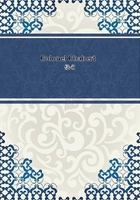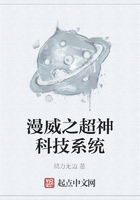It was in this salon, too, that the modern art of conversation, which has played so conspicuous a part in French life, may be said to have had its birth. Men and women met on a footing of equality, with similar tastes and similar interests. Different ranks and conditions were represented, giving a certain cosmopolitan character to a society which had hitherto been narrow in its scope and limited in its aims. Naturally conversation assumed a new importance, and was subject to new laws. To quote again from LaBruyere, who has so profoundly penetrated the secrets of human nature: "The esprit of conversation consists much less in displaying itself than in drawing out the wit of others . . . Men do not like to admire you, they wish to please; they seek less to be instructed or even to be entertained, than to be appreciated and applauded, and the most delicate pleasure is to make that of others." "To please others," says La Rochefoucauld, "one must speak of the things they love and which concern them, avoid disputes upon indifferent maters, ask questions rarely, and never let them think that one is more in the right than themselves."
Many among the great writers of the age touch in the same tone upon the philosophy underlying the various rules of manners and conversation which were first discussed at the Hotel de Rambouillet, and which have passed into permanent though unwritten laws--unfortunately a little out of fashion in the present generation.
It is difficult to estimate the impulse given to intelligence and literary taste by this breaking up of old social crystallizations. What the savant had learned in his closet passed more or less into current coin. Conversation gave point to thought, clearness to expression, simplicity to language.
Women of rank and recognized ability imposed the laws of good taste, and their vivid imaginations changed lifeless abstractions into something concrete and artistic. Men of letters, who had held an inferior and dependent position, were penetrated with the spirit of a refined society, while men of the world, in a circle where wit and literary skill were distinctions, began to aspire to the role of a bel esprit, to pride themselves upon some intellectual gift and the power to write without labor and without pedantry, as became their rank. Many of them lacked seriousness, dealing mainly with delicate fancies and trivial incidents, but pleasures of the intellect and taste became the fashion. Burlesques and chansons disputed the palm with madrigals and sonnets. A neatly turned epigram or a clever letter made a social success.
Perhaps it was not a school for genius of the first order.
Society favors graces of form and expression rather than profound and serious thought. No Homer, nor Aeschylus, nor Milton, nor Dante is the outgrowth of such a soil. The prophet or seer shines by the light of his own soul. He deals with problems and emotions that lie deep in the pulsing heart of humanity, but he does not best interpret his generation. It is the man living upon the level of his time, and finding his inspiration in the world of events, who reflects its life, marks its currents, and registers its changes. Matthew Arnold has aptly said that "the qualities of genius are less transferable than the qualities of intelligence, less can be immediately learned and appropriated from their product; they are less direct and stringent intellectual agencies, though they may be more beautiful and divine." It was this quality of intelligence that eminently characterized the literature of the seventeenth century. It was a mirror of social conditions, or their natural outcome. The spirit of its social life penetrated its thought, colored its language, and molded its forms. We trace it in the letters and vers de societe which were the pastime of the Hotel de Rambouillet and the Samedis of Mlle. de Scudery, as well as in the romances which reflected their sentiments and pictured their manners. We trace it in the literary portraits which were the diversion of the coterie of Mademoiselle, at the Luxembourg, and in the voluminous memoirs and chronicles which grew out of it.
We trace it also in the "Maxims" and "Thoughts" which were polished and perfected in the convent salon of Mme. de Sable, and were the direct fruits of a wide experience and observation of the great world. It would be unfair to say that anything so complex as the growth of a new literature was wholly due to any single influence, but the intellectual drift of the time seems to have found its impulse in the salons. They were the alembics in which thought was fused and crystallized. They were the schools in which the French mind cultivated its extraordinary clearness and flexibility.
As the century advanced, the higher literature was tinged and modified by the same spirit. Society, with its follies and affectations, inspired the mocking laughter of Moliere, but its unwritten laws tempered his language and refined his wit. Its fine urbanity was reflected in the harmony and delicacy of Racine, as well as in the critical decorum of Boileau. The artistic sentiment rules in letters, as in social life. It was not only the thought that counted, but the setting of the thought. The majestic periods of Bossuet, the tender persuasiveness of Fenelon, gave even truth a double force. The moment came when this critical refinement, this devotion to form, passed its limits, and the inevitable reaction followed. The great literary wave of the seventeenth century reached its brilliant climax and broke upon the shores of a new era. But the seeds of thought had been scattered, to spring up in the great literature of humanity that marked the eighteenth century.















